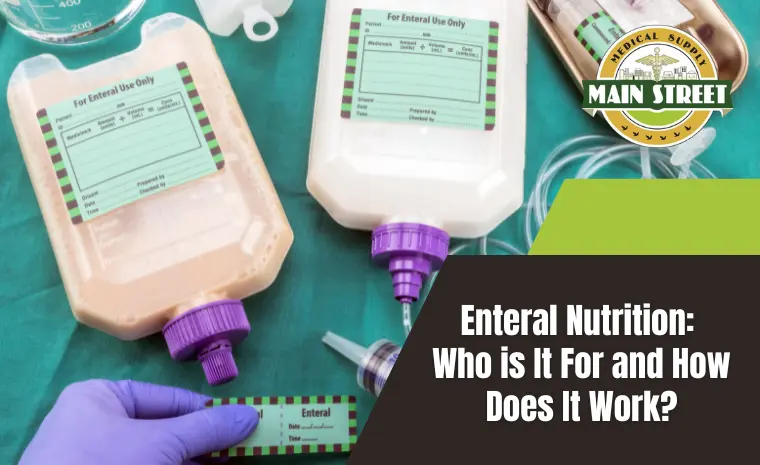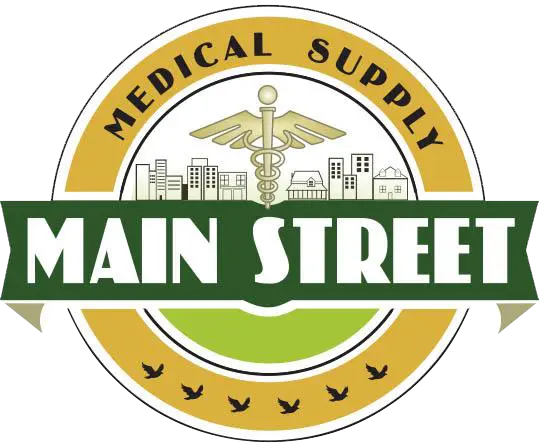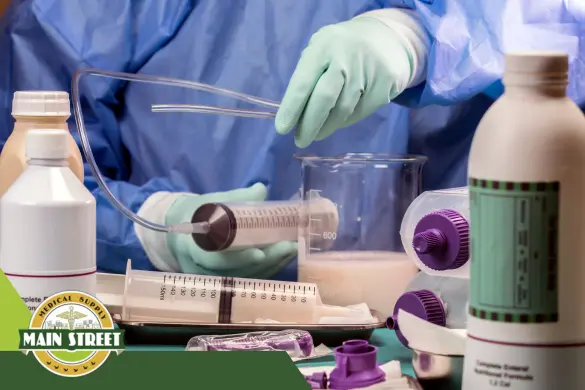
Enteral nutrition is a vital method of delivering adequate nutrition directly into the gastrointestinal tract, ensuring that patients with various clinical conditions receive the necessary nutrients for their recovery. This form of feeding is particularly crucial for individuals experiencing a critical illness, as it supports their nutritional needs when traditional eating methods are not feasible.
By providing a consistent supply of essential nutrients, enteral intake helps maintain overall health and promotes healing. Understanding the importance and benefits of this feeding method is key for patients, caregivers, and healthcare providers alike.
Continue reading to know how enteral feeding works, and its advantages.
Who Benefits from Enteral Nutrition?
Enteral nutrition plays a crucial role in providing essential nutrients to individuals who are unable to consume enough food orally to meet their nutritional requirements. This method is especially beneficial for patients facing gastrointestinal disorders, such as Crohn’s disease or irritable bowel syndrome, where nutrient absorption is compromised.
Additionally, individuals with cancer undergoing treatments that affect their ability to eat may benefit greatly from enteral formulas tailored to their specific needs. In cases where bowel obstruction prevents the normal passage of food, enteral feeding tubes offer a direct route for delivering nutrients to support the patient’s health and recovery.
How Does Enteral Nutrition Work?
Enteral nutrition involves the delivery of liquid formula directly into the gastrointestinal tract using feeding tubes. This ensures patients with medical conditions that impair their nutritional status receive adequate nourishment.
There are several types of enteral tubes, including:
- Nasogastric (NG) tubes: inserted through the nose and into the stomach for short-term feeding needs.
- Gastric (G) tubes: surgically placed into the stomach for long-term feeding solutions.
- Jejunostomy (J) tubes: positioned in the jejunum for patients with gastric motility issues or bowel obstruction.
Enteral feeding can be administered through various methods, such as:
- Continuous feeding: A steady infusion of liquid formula over a set period using a feeding pump.
- Intermittent feeding: These scheduled feedings are given at specific intervals throughout the day.
- Bolus feeding: These larger amounts of formula are given quickly several times a day, mimicking regular meals.
These diverse methods accommodate varying medical conditions and nutritional needs, ensuring optimal management of patients’ nutritional status.
Benefits of Enteral Nutrition
Enteral nutrition significantly improves nutritional status and overall health outcomes by ensuring the efficient delivery of nutrients directly to the gastrointestinal tract. This method enhances the absorption of nutrients, which is crucial for maintaining the body’s essential functions and supporting recovery.
Patients receiving tube feedings often experience enhanced recovery and a better quality of life, as their nutritional needs are met consistently, even when oral intake is insufficient. The tailored nutritional support helps accelerate healing and improves overall well-being.
Compared to parenteral nutrition, enteral nutrition offers several advantages. It poses a decreased risk of infection, is more cost-effective, and prevents gut atrophy. Additionally, enteral feeding helps preserve the barrier function of the gut, further promoting patient health.
Managing Enteral Nutrition at Home
Maintaining proper hygiene and correct tube care is essential to ensure the effectiveness and safety of enteral tube feeding. Regular cleaning and inspection of the feeding tube can prevent infections and complications, promoting better health outcomes.
Tips for caregivers on administering enteral nutrition:
- Always wash your hands thoroughly before handling the feeding tube or formula.
- Verify the correct tube placement before each feeding to ensure proper delivery of nutrients.
- Use a feeding pump to administer the liquid formula at the correct levels and flow rates.
- Monitor the patient’s fluid requirements closely to avoid dehydration or overhydration.
- Keep the feeding area clean and sterile to minimize the risk of contamination.
Where to Get Enteral Nutrition Supplies
MainStreet Med Supply offers a wide range of enteral nutrition supplies to support your health and well-being. For those in need of enteral tubes, whether for short-term recovery or long-term use, we provide high-quality products to ensure effective enteral intake.
Our medical supply in Lancaster includes everything necessary for enteral tube feeding, along with various other essential medical supplies and equipment. Rely on us for all your nutritional and medical needs to help you maintain optimal health.
Your Trusted Medical Supply in Lancaster
Enteral nutrition is important for patients needing nutritional support, especially those on long-term enteral tube feeding. The use of Enteral tubes ensures the correct levels of nutrition and fluid requirements are met, promoting optimal health outcomes.
For individuals seeking medical supplies in Lancaster, MainStreet Med Supply offers a comprehensive range of products and services to support your needs. Whether you are a patient, caregiver, or healthcare provider, reach out to us for more information.


